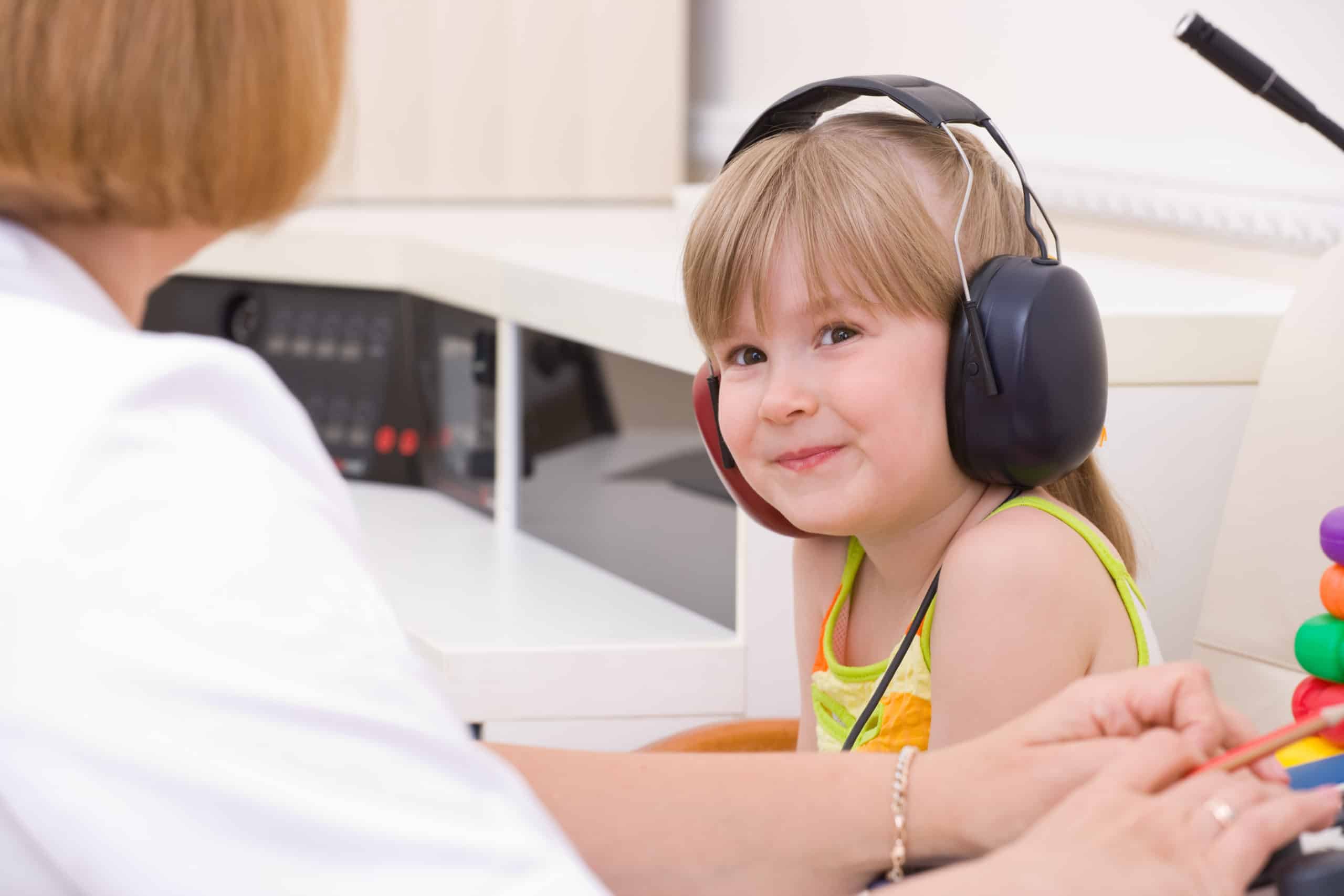The Importance of Early Intervention in Hearing

Hearing loss, either partial or complete, is the number one birth defect in the United States. The ability to hear affects our development of speech, communication, cognitive, and social abilities. Detecting a hearing problem early can ensure that infants and children receive the extra care they need to continue developing properly.
When Should Children Be Screened?
The first time your child’s hearing should be screened is at the hospital after birth and is recommended at least within the first month of your child’s life. Any signs of hearing loss at this time should be followed up with another screening at three months. If hearing loss is confirmed at this time, you should consider the use of a hearing aid by the time your child is six months old to ensure they develop their speech and language skill properly. Although the earliest possible detection is better, you can have your child screened at any age.
How is a Hearing Screening Done?
Newborns and infants are screened for hearing loss using two different methods. Using Otoacoustic Emissions (OAE), a sponge earphone is placed into the ear canal to measure how well the ear responds to sound. If an echo is produced after the sound is administered, the ear is responding properly, but if no echo is produced, this can be a sign of hearing loss. In another method called Auditory Brain Stem Response (ABR), earphones are placed over the ears where sound is emitted. Electrodes are placed on the head to record how the child’s brain is reacting to the sound.
Signs of Hearing Loss in Children
Hearing loss can occur at any point during childhood or adulthood. Even if your infant passes a hearing test early on, you should continue to watch for signs of a hearing problem throughout their childhood. These signs include not reacting to loud noises, not turning to respond to your voice, not being able to follow verbal directions, impaired speech and language development, and speaking too loudly.
If you suspect your child has a hearing problem, contact Associates of Otolaryngology today. We can schedule your consultation with an ENT specialist to have your child’s hearing tested and to develop a treatment plan if necessary.
Associates of Otolaryngology, or, AOO | ENT Specialists of the Rockies has been serving multiple generations of families across the Denver Metro area since 1969. Our group of board-certified surgeons has been providing award-winning treatment and exceeding patients’ expectations with our specialized ENT services for over fifty-five years.
Thanks to our exceptional providers, we are an all-encompassing, comprehensive ENT practice. Our expert team of specialists includes general ENT surgeons, head and neck surgeons, sleep, sinus, and allergy specialists, and facial cosmetic and reconstructive surgeons. In addition, our team of providers is supported by doctoral-level audiologists, physician assistants, and nurse practitioners.





